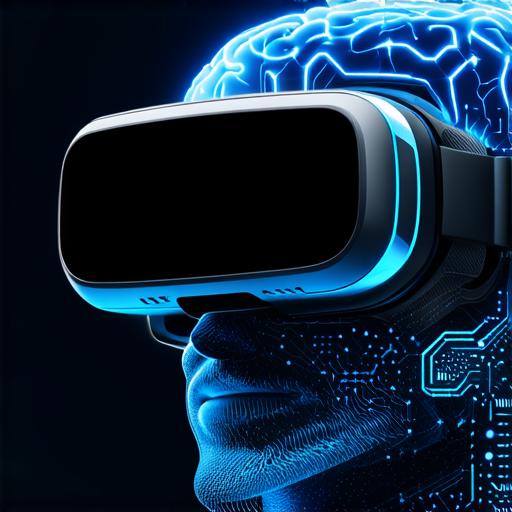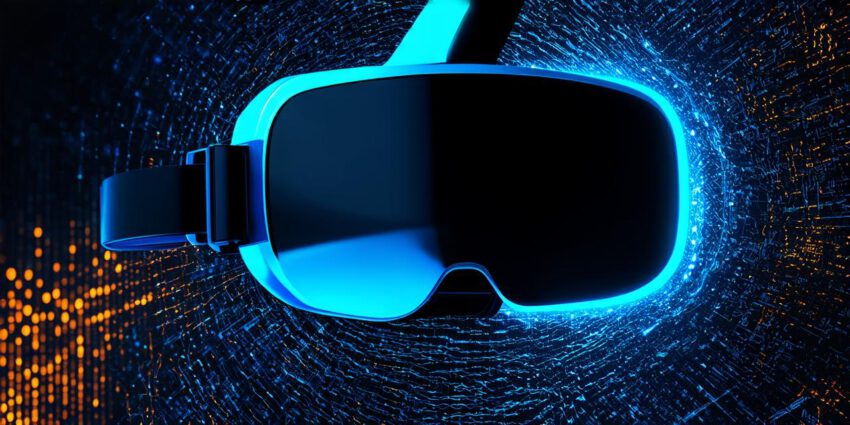<!DOCTYPE html>
The Impact of Virtual Reality on Cognitive Development
Virtual reality has been found to have a positive impact on cognitive development in several ways. Firstly, VR provides an immersive and interactive environment that stimulates the brain and enhances memory retention. By engaging the user’s senses in a way that traditional gaming cannot, VR creates a more realistic and memorable experience. This can lead to improved learning outcomes and better cognitive performance.
Secondly, VR has been shown to improve spatial awareness and visual-spatial skills. In virtual reality, users are presented with a 3D environment that they must navigate using hand gestures or other input devices. This requires the brain to process and interpret spatial information in real time, leading to improved cognitive function.
Thirdly, VR has been found to enhance creativity and problem-solving skills. By allowing users to explore new environments and interact with virtual objects in a way that is not possible in reality, VR provides a unique opportunity for creative exploration and experimentation. This can lead to increased innovation and better problem-solving abilities.
How Mobile Gaming Apps are Using Virtual Reality to Enhance Learning
Mobile gaming apps have begun to incorporate virtual reality technology to create more immersive and engaging games that also enhance cognitive development. One example of this is the use of VR in language learning apps, where users can practice speaking and listening skills in a virtual environment.
Another example is the use of VR in math and science apps, where users can explore complex concepts such as quantum physics or astrobiology in a 3D environment. This provides a more interactive and engaging way to learn these subjects, leading to improved cognitive performance.
Case Studies: The Power of Virtual Reality in Mobile Learning
There are many examples of how virtual reality has been used in mobile learning apps to enhance cognitive development. One such example is the use of VR in language learning apps, where users can practice speaking and listening skills in a virtual environment.
One study found that students who used a VR-based language learning app showed significant improvements in their speaking abilities compared to those who used traditional language learning methods. The immersive nature of VR provided a more realistic and memorable experience, leading to better cognitive function and improved learning outcomes.
Another example is the use of VR in math and science apps, where users can explore complex concepts such as quantum physics or astrobiology in a 3D environment. One study found that students who used a VR-based math app showed significant improvements in their understanding of mathematical concepts compared to those who used traditional methods.
Expert Opinions: The Future of Virtual Reality in Mobile Learning
Experts in the field believe that virtual reality will continue to play an increasingly important role in mobile learning in the coming years. They predict that we will see more and more mobile apps incorporating VR technology to create more immersive and engaging experiences that also enhance cognitive development.
One expert in the field, Dr. Michael Dellarocas, said “Virtual reality is an incredibly powerful tool for enhancing learning and improving cognitive function. As mobile devices continue to evolve, we will see more and more apps incorporating VR technology to create immersive and engaging experiences that also improve learning outcomes.”
FAQs: Frequently Asked Questions about Virtual Reality in Mobile Learning
What is virtual reality?
Virtual reality is a computer-generated simulation that creates an immersive 3D environment for the user to interact with.
How does virtual reality impact cognitive development?
Virtual reality has been shown to enhance memory retention, improve spatial awareness and visual-spatial skills, and enhance creativity and problem-solving abilities.
What are some examples of mobile apps that use virtual reality for learning?
Examples include language learning apps, math and science apps, and history and cultural apps.

What are the benefits of using virtual reality in mobile learning?
Virtual reality provides an immersive and interactive environment that stimulates the brain and enhances memory retention, improves spatial awareness and visual-spatial skills, and enhances creativity and problem-solving abilities.
Summary: Virtual Reality’s Potential to Enhance Cognitive Development in Mobile Gaming Apps
Virtual reality has the potential to revolutionize mobile gaming and enhance cognitive development in a number of ways. By providing an immersive and interactive environment that stimulates the brain and enhances memory retention, improves spatial awareness and visual-spatial skills, and enhances creativity and problem-solving abilities, VR can create a more engaging and memorable learning experience for mobile gamers.
As mobile devices continue to evolve, we will see more and more apps incorporating VR technology to create immersive and engaging experiences that also improve cognitive function. With its ability to provide a unique and innovative way of learning, virtual reality has the potential to be a game-changer in the world of mobile gaming.

